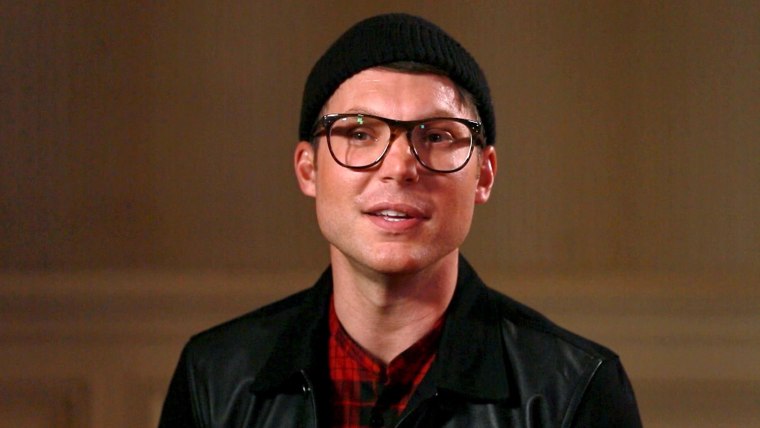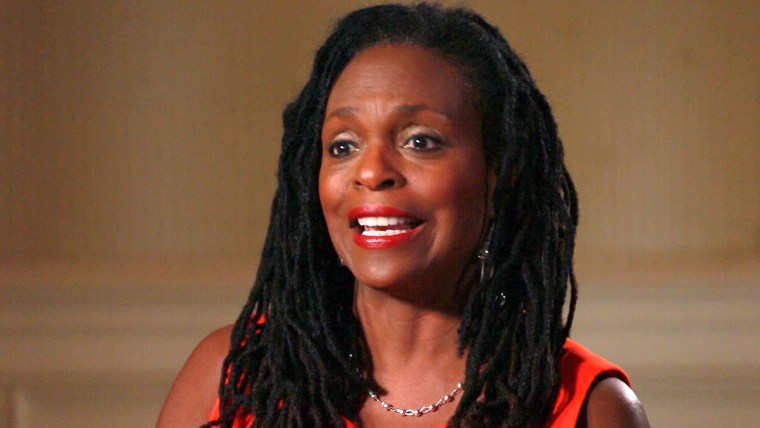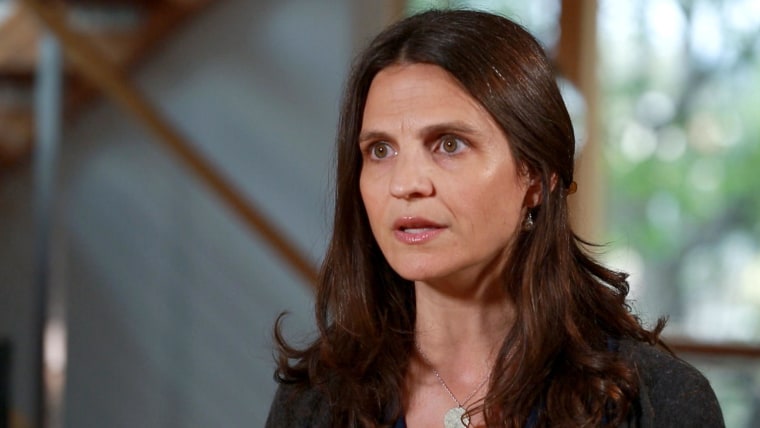Who is God?
It's hardly a new question, but it's one that's asked of today's religious leaders all the time. Here, three very special leaders who are working to help their thriving congregations find meaningful, modern relationships with God, share their paths to faith and what it means to them today.
Pastor Judah Smith commutes weekly from his home in Seattle to Los Angeles, where his services in hotel ballrooms draw huge crowds — even celebrities like Justin Bieber. You can read an excerpt of his book "Life Is ___ " here.

I am a preacher’s kid, which means I’ve been to more church services than you probably have Starbucks. Apparently it got into my blood, though, because I grew up to be a pastor as well.
As a kid I was mesmerized by the art of preaching. I have vivid memories of my dad speaking to people across the nation, and I remember analyzing his delivery, his voice, his emotion, his mannerisms, and his message. He was my hero, and I wanted to be just like him.
I learned a lot from him about how to communicate in public settings. But one of the most profound lessons he taught me didn’t come from a church service.
At the time, I was 10 or 11 years old. We were in Hawaii, where my dad was speaking at a convention. (Perks of being a pastor’s kid. Don’t hate.) One night after the meeting, my parents, my sister, and I got in the local pastor’s minivan. But we didn’t go back to the hotel like I expected. Instead we drove into downtown Honolulu. I remember asking my dad, “Where are we going?”
He replied, “Son, we’re going to go help a girl that we love.”
We came to an area of town that was dark, dirty, and more than a little creepy. Not the kind of place where you’d expect a pastor or his family to go — especially at night. We pulled into an alley and parked. I heard urgent whispers from the front seat. My parents and their pastor friend were looking at a group of women on a street corner. Even as a kid I could tell these ladies weren’t dressed like my mom. Not even close.
Suddenly my dad opened his door and walked up to the group. He singled out one girl in particular. She seemed to know him. That’s strange, I thought. How does my dad know her? Then things got really crazy. My dad ran back to the van. We pulled around the corner. The girl jumped in the van with us, the door slammed shut, and we hit the gas. Right about then, I realized we were in the middle of a full-on rescue mission.
It turned out that previously, the girl had been in my dad’s youth ministry in Portland, Oregon. But she got involved in a bad relationship and ultimately became a victim of the sex trafficking industry.Then my dad found out about it. And ignoring the danger, the seedy surroundings, and the potential for scandal, he did what he needed to do. He went into the depths of darkness to rescue her.
That night I learned something that has stayed with me throughout my life. Being a pastor isn’t about preaching great sermons. It isn’t about theology or doctrine. It isn’t about knowing how to motivate a crowd or outline a message.
It’s about people. It’s about love.
Those other things are helpful, of course — but they aren’t the point. The point is loving people the way God loves them. Unconditionally. Passionately. Unswervingly. Without love, nothing else matters. Yes, generosity and good deeds are important. But if our faith doesn’t lead to authentic love, we’ve missed the point.
Today, I pastor the church my parents started. A lot of things have changed over the years: programs, service times, dress, vocabulary, and more. But one thing hasn’t changed, and that is love. Love is the driving force behind everything we do. We are who we are because of God’s love. He loved us before we even knew who he was. Now we have the privilege of showing his love to people around us.
And here’s the most beautiful part. It isn’t hard to love like this. Anyone can do it.
Sometimes we think spirituality is hard. We think we have to strain and strive and sacrifice. We assume that only a few people—the saints among us—can truly please God. But love is not hard. It is simply who we are.
You and I might have different definitions of God and faith. We might have different opinions about what heaven is and how to get there. But I’m pretty sure we can agree on this: ultimately, love is the essence of faith. It’s the foundation of religion. Love is the substance, the ethos, the message, and the proof of true spirituality.
We owe everything to love, and we get to spend the rest of our lives giving away the love God so freely gave us.
Reverend Doctor Jacqui Lewis' Middle Collegiate Church in New York City is a Protestant church using the old to attract the new.

For as long as we have drawn breath, human beings have pondered “What is God like?”
As a Christian pastor, my job is to try to make meaning of God. To make the invisible visible. To make the mysterious accessible. To make the transcendent intimate. To try to reveal more fully that which is essentially unknowable.
My sacred texts say that God created the universe, and then created humankind in God’s image. There is the sense that God longs to be in a loving relationship with humankind. God loves us, even when we stray or turn our backs on God. God is a steadfast lover who listens to our cries, and comes to comfort and save us.
God is love.
What does this love look like? We can see signs of love when we are mentoring a child. Volunteering to shop for an elderly friend. Running toward a fire to save strangers. Helping a fallen neighbor to safety. Serving sandwiches in the park or hot soup from a kitchen to those who are hungry.
Love looks like giving up a subway seat to a vulnerable person. Holding hands with someone who is grieving, or making a meal for a family in transition.
Love looks like having a tough conversation rather than letting concerns fester. It looks like speaking the truth to power and standing in for those on the margins.
Love looks like exercising our right to vote and dismantling oppressive systems and structures.
Love apologizes and makes amends and celebrates reconciliation.
I am a Christian pastor who believes when I get to heaven there will be Jews, Muslims, Christians and Buddhists there. There will also be kind and loving people who have never professed faith in “God,” but who have deeply lived in love.
What is God like? My God is a faithful, healing power; a sweet, gracious and spacious presence that will never leave us. My God is love.
Rabbi Sharon Brous of IKAR in Los Angeles draws hundreds to her services, and uses smaller house parties to maximize connection.

At some point in college, I was invited to Shabbat dinner in a classmate’s dorm room. I remember neither the host’s name nor any of the guests, but I know that the evening culminated in a traumatic incident with the bottle of salad dressing I had brought, which the host inexplicably jettisoned into the dorm hallway as she screamed, with tears in her eyes, that I had totally treifed up her kitchen by bringing in unhekshered food. This, in turn, made me burst into tears, as I tried to explain that I didn’t understand a word she was saying (treif? heksher?). The fact that a sealed bottle of Italian dressing, even one lacking rabbinic certification, could not render a countertop treif — unkosher -—(which I only learned years later) did not seem to matter to her in the slightest.
After a number of similarly humiliating incidents, I came to see the Jewish community and institutional religion altogether as rigid, judgmental and exclusionary. For years, I walked away, until at a certain point I determined that I at least owed it to myself to learn enough to no longer be embarrassed, and found myself diving back into the traditions of my grandparents.
Today, I spend much of my time talking to young, unaffiliated, religiously disconnected Jews, people not unlike me at the time of The Salad Dressing Incident. I’m not alone in feeling or having felt more like an outsider than an insider — alienation and shame are as prevalent in the Jewish world as guilt, ambition and white fish.
But what I hear when I talk to these folks is interesting: Many reject perfunctory recitations of prayers that they don’t understand, but the idea of spiritual practice resonates deeply — conjuring gratitude, forgiveness and wakefulness in moments that would otherwise be routine and meaningless. They even appreciate their ability to bring holiness into otherwise mundane acts, like waking up, going to the bathroom, drinking a caramel Frappuccino.
They detest the formality and rigidity of American religious services, but they (hungrily) embrace nonconventional prayer environments that authentically embrace anger, ambivalence, longing and love. They won’t join just because their parents did, but they understand and deeply appreciate the idea of community, of showing up for one another. Even in a time of fragmentation, isolation and radical individuality, they get the power of connectedness.
So while it’s true that there is unprecedented disaffection, defection and disinterest among young Jews toward religious life, in my experience, it’s not because they reject the core elements of community, prayer, ritual, gratitude, forgiveness, holiness, and God — what they reject is a 20th century iteration of institutional religious life that feels devoid of life, passion and spiritual challenge.
One of my cherished teachers is a Benedictine Monk named David Steindl-Rast, who teaches that religion is like an erupting volcano: fiery, powerful, dangerous, “gushing forth red hot from the depths of mystical consciousness.” But the stream of lava quickly cools off. A couple hundred years pass, and what was once alive is now dead rock, devoid of all traces of life.
So much of American religious life has become irreligious. Hard, dead rock. Far greater emphasis is placed on the container — the formalities, rules and rites — than soul and spirit. Institutions seem more concerned with what we wear than where we are. Too often, it feels like institutional perpetuation for its own sake. And all that, it turns out, does little to attract and inspire.
Given this reality, the work today is, as Steindl-Rast says, to push through the crust and rediscover the fire buried deep beneath the surface.
So I advise folks to think of religion today as an excavation project. Before walking away, try digging a little. You just might find something beautiful hiding deep beneath the surface.